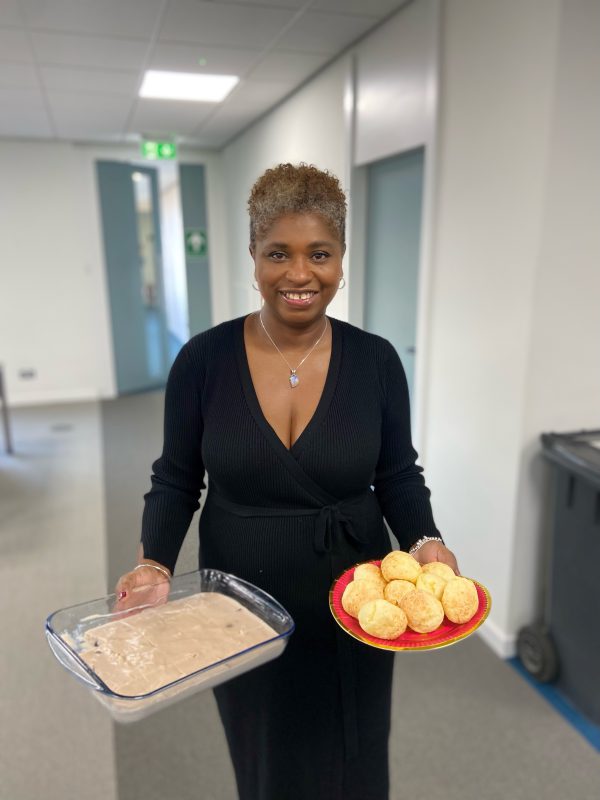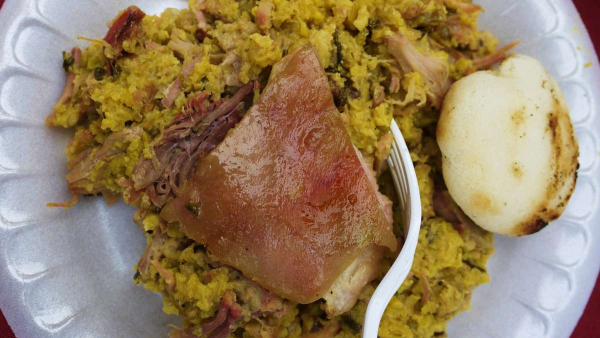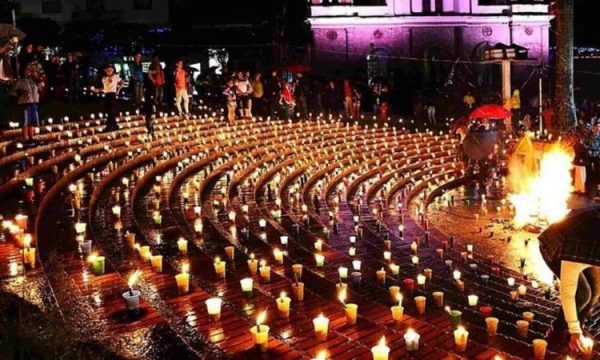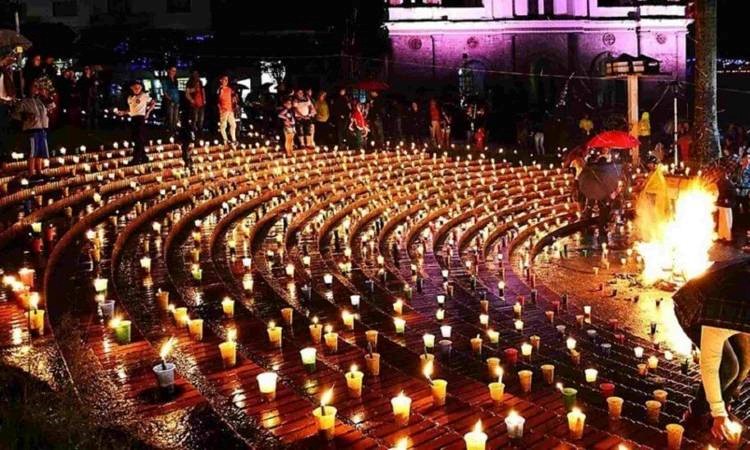For many of us, Christmas is all about eating too much turkey and Christmas pudding, singing Jingle Bells at some point during the festivities and pulling on a cracker or two, only to be disappointed with the ‘dad joke’ inside.
But for others, there won’t be a hint of a roast potato or mince pie as they have other Christmas traditions due to their heritage or culture. We’ve been speaking to a few colleagues who make up our diverse public service to find out what Christmas looks like for them. Here’s how Colombian national Adoni Mosquera-Valencia, Diversity and Inclusion Consultant for the Talent Team, celebrates….
Colleagues in the talent team know they are in for a treat on 7 December when Adoni brings in her famous cheesy balls and sweet milk dessert packed with raisins and cinnamon, better known as Buñuelos and Natilla. Two dishes that symbolise the start of Christmas in the Colombian city of Medellin where Adoni grew up.

Christmas really starts on 7 December, that is the assumption of the Virgin Mary. With that, we put candles outside in the city, outside your house. But it has to be real candles, it cannot be lanterns. There are no Christmas lights before that. Then you cook Natilla and Buñuelos and you share it with your neighbours, and something else like some chocolates, but just with your neighbours. There are no presents involved like they do here” explains Adoni.
The only other presents received are for children who believe in the magic of Father Christmas, also known as Niño Dios.
Adoni said, “You only get one present, it’s whatever you choose. Most of the kids will say ‘What did Father Christmas bring you?’ You will have to choose one present. So, although my son grew up here, I only give one present for Christmas. I don’t do these ‘millions of’ presents that they just thought of, it’s just one special present and then they concentrate on that, and they get more excited about only one thing. There isn’t anything here to show my culture, so I hold on to those traditions.

“You put the kids to bed about 7pm on 24 December, but you’d go to midnight mass if religious. You then have people around and you have a party. The kids will be woken up, and they are excited about waking up in the middle of the night having their presents, so the rest of the 25th of December was a write-off as people will be leaving about 4am or 5am because where I used to live, we had a great community.”
It’s that community feel that Adoni misses. As there are no chimneys on houses, Adoni remembers the neighbours closing the street and making sleigh marks using sand, and the men of the neighbourhood would organise a huge hog roast that was served up with rice on Christmas day, “it was not a responsibility of one person. It is the responsibility of a community that wants to cheer together and that is what I like the most.

“I find Christmas quite solitaire here, it’s very cemented in families. So, if you’re not part of them, like for example, when it was myself, my son and my husband it was just the three of us so it’s quite a lonely sort of Christmas.
“While there, you will go to your family but my family will invite the neighbours so you will never spend Christmas on your own,” said Adoni.
 blog.gov.je
blog.gov.je